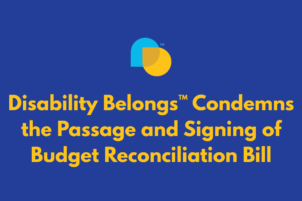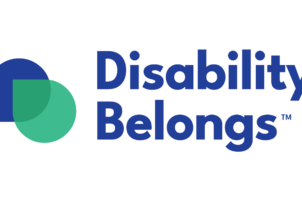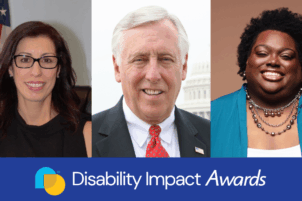In celebration of the 30th anniversary of the historic Americans with Disabilities Act, RespectAbility’s Lauren Appelbaum sat down with disabled journalists and nondisabled allies who have used their platform to shine the spotlight on stories important to the disability community to discuss the importance of disability representation and coverage in the media.
As it stands, disability inclusion does not get much attention in the media.
“People with disabilities are considered the invisible minority,” said Tim Gray, a senior VP at Variety. “I don’t think journalists are putting up a wall. I think it just doesn’t occur to them. Even now, with all the talk about diversity and inclusion, 90% of that conversation is about racial inclusion. Maybe the other 10% is about gender with women equality.”
“People with disabilities didn’t start protesting until the last few years,” he added. “So I think it’s a cumulative effect… I think journalists are much more aware than they were even four years ago, but still, a long way to go.”
To have more coverage of people with disabilities in the media, it helps to have journalists with disabilities. As a journalist with a disability herself, IndieWire TV Editor Kristen Lopez discussed why it is more authentic to have journalists with disabilities write these pieces.
“There are disabled narratives and a lot more things that the average writer I don’t necessarily think sees. So whether that’s something like the Babysitter’s Club TV series that just came out and that disabled storyline or even in film, looking at the history of film and how things are coded, and whether that is with regards to race or sexuality or disability, you can see something that an able-bodied person, cis white male might not see. So, the more different experiences and perspectives that come through in the writers will allow for more diverse perspectives to come through in the media that is being consumed.”
On the other hand, writers with disabilities can easily be pigeon-holed. They must have the opportunity to cover stories that don’t have to do with minority groups. Lopez said she has great co-workers who understand this but also emphasizes the importance of self-advocacy.
“That’s the problem that comes with being a diversity and inclusion writer is that you end up having to carry the weight of all the minority writing that happens on the site. So, you have to, just for your own mental health, be like, ‘hey, I need to cover other things because there’s more to me than just being a minority.”
One way to fix that is to have a more diverse newsroom with multiple journalists from a variety of marginalized populations – and not just as DEI reporters. “I think the more diverse voices we have in a newsroom, the more points of views we see, it’s also not the onus on diverse voices to carry the burden, this responsibility of talking for every single diverse group, because we’re only one person, and we only could do so much,” said Dino-Ray Ramos, Associate Editor at Deadline Hollywood.
“As someone with a disability, it can sometimes be hard to get accommodations,” Lopez added. “I think the hardest challenges for me probably came more when I was freelancing because you’re doing that all on your own. You’re your one-woman everything.”
Having a disability, permanent or temporary, often gives people a unique perspective. Victoria Arlen was in a wheelchair when she started working at ESPN.
“I think going through the things that I went through gave me, in a sense, an element of telling the story, but connecting on a different level with individuals. And a lot of the work I did in my early days was with Special Olympics, and with X Games, and with ESPYs, and all these different stories, different athletes from all walks of life. And being able to connect. And so for me, knowing the journey that it took for me to get to where I am being able to kind of go back and ask different athletes and individuals, okay, how did you get from there to here, what was that moment, what was that mountain you had to climb? And I think having my own mountain that I had to climb really allowed me to really look for those mountains with other people, and connect with them, and think well, How would I want that to be told in the most authentic heartfelt way that could really have an impact for so many people?”
Tim Gray offered advice for disabled individuals pitching pieces to outlets. “The more you talk to each other, the more you can coordinate things. You can make a stronger pitch and enlighten people, and again, sometimes one phone call to a journalist is going to make a difference, and you might have to make 20 phone calls over a year before the idea sinks in. But I think for me, the big goal is to make people more aware of people with disabilities.”
Appelbaum asked the panel if they had any advice for aspiring journalists, specifically those with disabilities.
“It is tough, and you have to not be afraid to say what you need when attending events like festivals and red carpets,” Lopez said.
Arlen advised giving 110% effort into it, not being shy and not being afraid to knock on doors. While it’s hard work, she said if you want it bad enough, go for it.
Ramos talked about how there are many more platforms and avenues of journalism now. “Bottom line is, I think there is opportunity, you just have to hustle and you have to be willing to get doors slammed in your face, people saying no, people ignoring you, because it’s a competitive industry. And then once you find that spot, stay there.”







